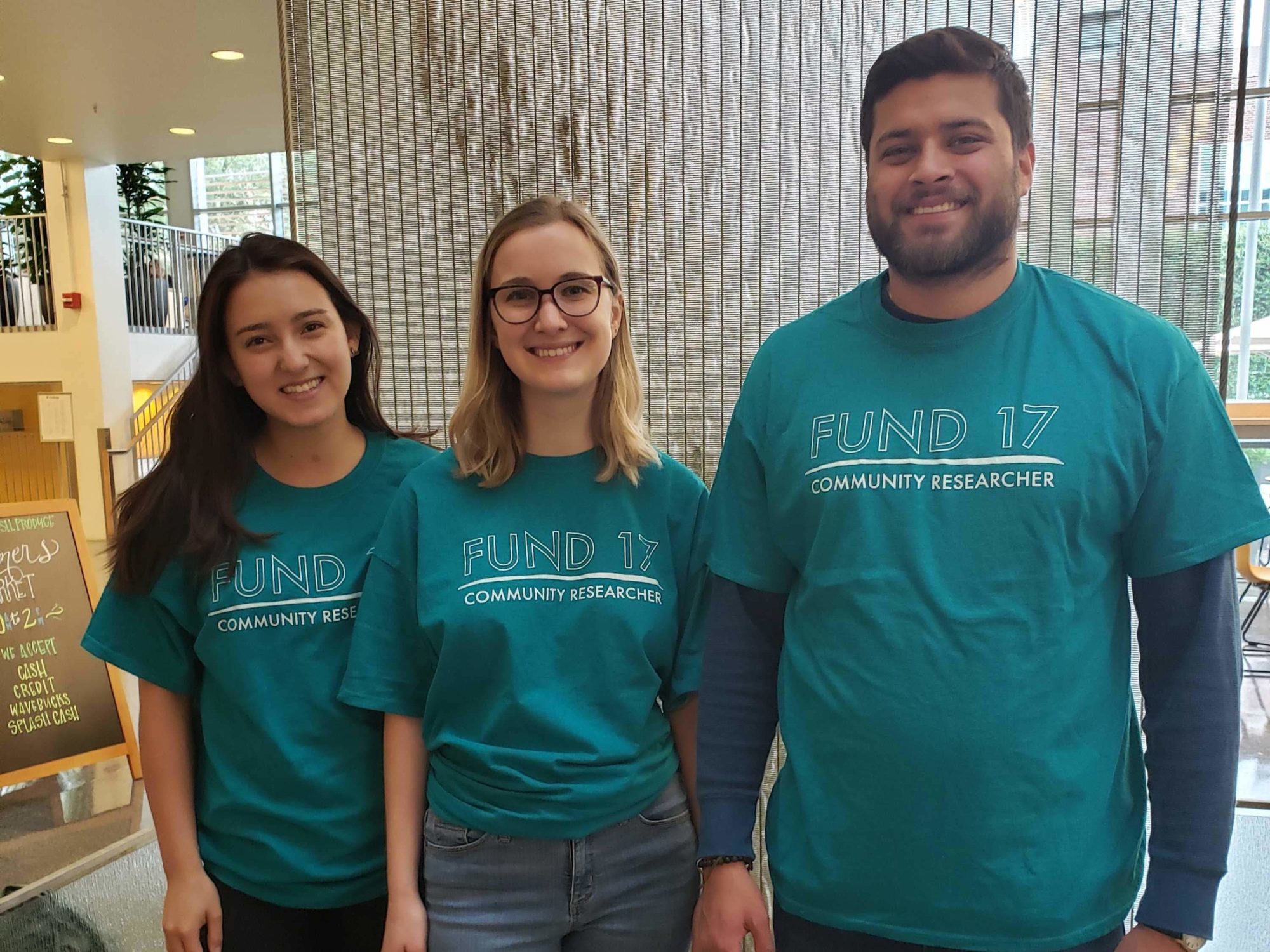Changemaker Catalyst Award recipient Madeline Ninno conducted research for Fund 17 this summer and published a report on Latinx entrepreneurs in the New Orleans Metropolitan Area. Madeline is a senior majoring in Economics and International Development with a minor in Public Policy.
This summer, I had the incredible opportunity of working for Fund 17 as a Community Research Intern alongside two other Tulane students. Fund 17, a local non-profit that provides free business services to low-income entrepreneurs, aligns greatly with my interest in urban economics, specifically previous research I had done on the effects of gentrification and income inequality on neighborhood-level business communities. I was also eager to work with Fund 17 because of their goals of helping entrepreneurs to develop sustainable livelihoods and combating inequality in New Orleans.
The three Community Research Interns (Carol, Brian, and I) were tasked with writing a report about the current state of Latinx entrepreneurs in the New Orleans Metropolitan Area, with a focus on their perspectives, goals, and needs. This report, which will be shared with other organizations throughout the city, utilized quantitative survey data and our qualitative observations to give readers a better understanding of the Latinx business community. Our research project was conducted with the guidance of a Tulane faculty member and the approvals of Tulane’s IRB.

Before we began surveying, we had to formulate our research questions, methodology, and survey form. This took much longer than I expected, but we had to make sure everything was correct to gain IRB approval and to guarantee that the data we collected would be useful. While developing the survey questions, we visited important locations in the Latinx business community to learn more about entrepreneurs and to introduce ourselves as researchers. We went to the Algiers Flea Market, the Westbank Market, El Centro, Ideal Market, and events around the city hosted by the Hispanic Chamber of Commerce. These trips were enlightening, as we were able to see first-hand how large, diverse, and tightly-knit the Latinx business community is.
We decided to survey at the same locations where we did outreach because they represented a wide range of businesses and because entrepreneurs and customers there had become familiar with us. Initially, we had difficulty finding people willing to participate in our survey. Since Fund 17 had not worked closely with the Latinx community before, many people were reluctant to share information about themselves or their business with us. We understood their reluctance to participate, especially given the current political climate, and reached out to other community organizations, such as El Centro and the Hispanic Chamber of Commerce, asking them to introduce us to members and connect us to entrepreneurs.
I was initially very nervous to survey entrepreneurs. I am naturally an introvert and, despite spending a semester in Argentina, I still speak Spanish with a thick accent. Our initial attempts at surveying did not help my nerves, as we were often rejected, but as the surveying progressed, I felt more confident approaching entrepreneurs and asking them questions. Hearing their stories was eye-opening. It is one thing to read about discrimination in a book or hear accounts on the news; but it’s completely different to speak face-to-face with someone who fears deportation on a daily basis or faces discrimination in their workplace for speaking their native language. I hope that our report can convey the massive challenges faced by these entrepreneurs and the impressive feats they have accomplished in spite of these limitations.

While we were able to collect almost 50 surveys, we fell short of our goal of 70. After months of traveling to markets and calling participants to conduct surveys, we had to stop seeking more participants and begin our data analysis. I enjoyed this part of the project most because it allowed me to use the skills I had developed in my economics classes. It was also exciting to see our months of surveys, observations, and interviews come together. Working with the two other interns made the process of analyzing the data and writing the report much more enjoyable, and I think the final result is better because of our teamwork.
Our report found that language is often a significant barrier for Latinx entrepreneurs, as so few resources are available in Spanish. Moreover, many are reluctant to reach out for assistance or access business resources due to the negative experiences they’ve had in the United States or other countries. Our research suggests that more organizations need to provide Spanish-language resources and that those wishing to work with the Latinx community must do considerable outreach to gain the trust of Latinx entrepreneurs and understand their unique perspectives. Several organizations are already doing meaningful work to support Latinx business owners, but more must be done to educate entrepreneurs and help them access business resources.
